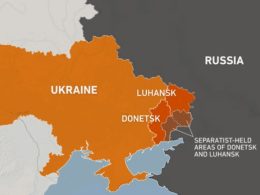In scrambling to avoid a break-up of the eurozone, the approach of the elites in Europe has been characterised by two common themes – austerity programmes to make the working class pay, and a further diminishing of democracy to facilitate the implementation of that austerity.
The results of that austerity have been felt by millions of people across Europe, particularly those in the countries that have received ‘bailouts’ for the European bankers – Ireland, Greece and Portugal. The failure of this medicine of cutbacks and attacks to generate economic growth and enable economies to be redeveloped has also been documented.
Here, I want to focus on the sinister and persistent undermining of democratic checks and controls that have been driven by the establishment in Europe in the course of the crisis. In saying that, no one should presume that the EU was a bastion of democracy prior to the crisis. Even within the limited terms of capitalist democracy, the EU is an inherently undemocratic organisation.
Despite the repeated rhetoric to the contrary, the European Parliament, which is the only directly elected body, has relatively little power. It has no power to ‘initiate’ legislation and a large portion of its work simply consists of making recommendations or suggestions in so-called “Own-Initiative reports” that go to the European Commission. It is with this unelected European Commission (President: Jose Manuel Barrosso) and the European Council (made up of the heads of state of the EU countries) that real power lies.
The Commission in particular plays the role of a strategic thinker for the capitalist classes in Europe. Shielded from the pressure of mass movements and not having to face elections in the member states, it is able to baldly put forward a strategy for a neoliberal, militarised Europe like that set out in its “Europe 2020” strategy.
So even in advance of the economic crisis, the level of democracy within the EU structures has been extremely limited. Decision making consciously takes place out of sight and mind and shrouded in technocratic language to make it very removed from public scrutiny and debate.
However, with the advent of the crisis and the consensus of the establishment around the need to impose austerity as a solution, democratic checks are being diminished even further. This attack on democratic rights fundamentally flows from the fact that if given a choice, the mass of people would not choose vicious austerity, cutbacks and mass unemployment! Therefore, to achieve the chosen ‘solution’ of the establishment, the people must not be given a choice. These attacks on democratic rights have taken a variety of forms.
Increased role of the European Central Bank
The European Central Bank is, in line with neoliberal economic logic, ‘independent’. Independent of whom, you might ask? Well, independent from any democratic check or oversight by representatives of ordinary people. It certainly isn’t independent from the interests of big business and the right-wing economics that serves their interests. One of the clear developments in this crisis has been an increase in the role of the European Central Bank, and its President, Jean-Claude Trichet.
The ECB is now an equal partner in the so-called ‘Troika’ of the European Commission, the ECB and the IMF. This means that the central bank for Europe is actively intervening with the governments of Europe to demand certain austerity policies. More than that, however, particularly in recent weeks, it has used its powers as a potential buyer of bonds on the bond markets, to blackmail countries into implementing very specific austerity policies.
It has emerged that Mr. Trichet wrote a secret letter to the Italian government in early August detailing a series of austerity measures to be implemented in exchange for the ECB agreeing to purchase Italian bonds. The letter called for privatisation of municipal assets, liberalisation of various sectors and gave detailed advice on how to relax Italian employment law!
The response was swift, with both the Italian and Spanish governments aceding to the requests, which are in line with the right-wing character of these governments in any case. Berlusconi announced a package which included extra austerity measures worth €45.5 billion. The Spanish government did likewise, and promised a constitutional cap on debt amongst other measures.
This incredible situation – whereby an ‘independent’ ECB dictates, not just the general thrust of policies (which would be bad enough), but also offers detailed austerity proposals – was not commented on widely. However, it is a very clear indication of the diminishing of democracy within the EU as part of the establishment’s response to the crisis.
So much so that Berlusconi (no friend of democracy or workers’ interests) was moved to exclaim: “They made us look like an occupied government.” Of course, it suits the likes of Berlusconi to blame the ECB for the austerity his right-wing government is carrying out. Clearly a genuine left government would refuse to be bullied by the ECB or the markets, by refusing to pay the debt to the international bondholders and instead raising necessary funds by taxing the super-rich and corporations as well as developing economic growth through a democratic plan based on the needs of ordinary people. However Berlusconi’s comment is indicative of the incredible power that this entirely unelected and unaccountable institution has gathered for itself.
Moves towards an “economic government”
Repeated calls have now been made by the establishment in Europe for the creation of some sort of ‘economic government’ or ‘economic council’, to be chaired, if the current wishes of Chancellor Merkel and President Sarkozy are to be met, by Hermann Van Rompuy (the currently unelected President of the European Council). This body would be a sort of economic leadership for the eurozone countries. In other words, its aim would be to ensure that sufficient austerity is applied with sufficient vigour across Europe.
After their recent summit, President Sarkozy announced the aim “to create a real economic government for the eurozone” and Chancellor Merkel announced “there has to be a stronger coordination of financial and economic policy”. You can be sure that they are aware that this “stronger co-ordination” (read: common austerity) and economic government will not be welcomed by the mass of people.
Instead, to achieve this move towards fiscal unity, they know they have to diminish democracy further, hence the concentration of more powers and “economic direction” into the hands of an unaccountable “economic government”.
The most boldly-stated version of this proposal has come from the German Foreign Minister Guido Westerwelle who has called for a “stability council” of unelected supervisors for the economies in the eurozone, with the power to impose sanctions on countries that don’t implement sufficient austerity.
Economic governance and the eurozone plus pact
The apex of the current attacks on democracy within the EU are plans for “economic governance”. This series of proposals, which are currently still being fine tuned, amount to a further serious diminishing of democratic checks within the EU.
Budgets will now have to be presented to the European Commission and Council for approval (“surveillance”) in advance of any debate in national parliaments. The proposals also strengthen the “Growth and Stability Pact” which limits countries’ public debt to 60% of GDP and their annual deficits to 3% of GDP. Sanctions are to be introduced for countries that miss these targets, with states in breach having to pay 0.2% of their GDP into a non-interest bearing account, which will be lost as a fine if they do not follow the directions of the Commission. This fine can be increased up to 0.5% of GDP (around €700 million for Ireland). The final element is a procedure to prevent “macroeconomic imbalances”. The Commission will create a series of parameters (as yet unannounced) and a scoreboard of austerity will be used to measure a country’s progress. If a state fails to meet the targets, further massive fines can be imposed.
All of these moves are designed to facilitate the imposition of semi-permanent austerity in Europe. It is being prepared with the awareness that a major movement of opposition to cutbacks already exists in Greece, Portugal and Spain and can easily develop in Ireland and other countries. Conscious of the pressure that such movements can exert on governments that have to seek re-election, this is designed to move decision-making further away from working people and create a counter-pressure on national governments (through the threat of fines and the process of budgetary surveillance) to enable them to resist these movements.
How can the further diminishing of democracy be stopped?
The diminishing of democratic checks is entirely related to the content of the proposals that the undermining of democracy is designed to facilitate. Therefore, the battle against austerity of the Left and the trade union movement needs to take up the question of democracy within the European Union as well.
In Ireland, loud noise must be made to demand a referendum which it is the intention of the government to not grant us, on the amendments to the Lisbon Treaty to facilitate the establishment of the European Stability Mechanism. Fundamentally, the whole undemocratic EU project must be resisted and a struggle for an alternative, socialist Europe, based on the interests of working people across the continent and mass participative democracy, must be waged.












